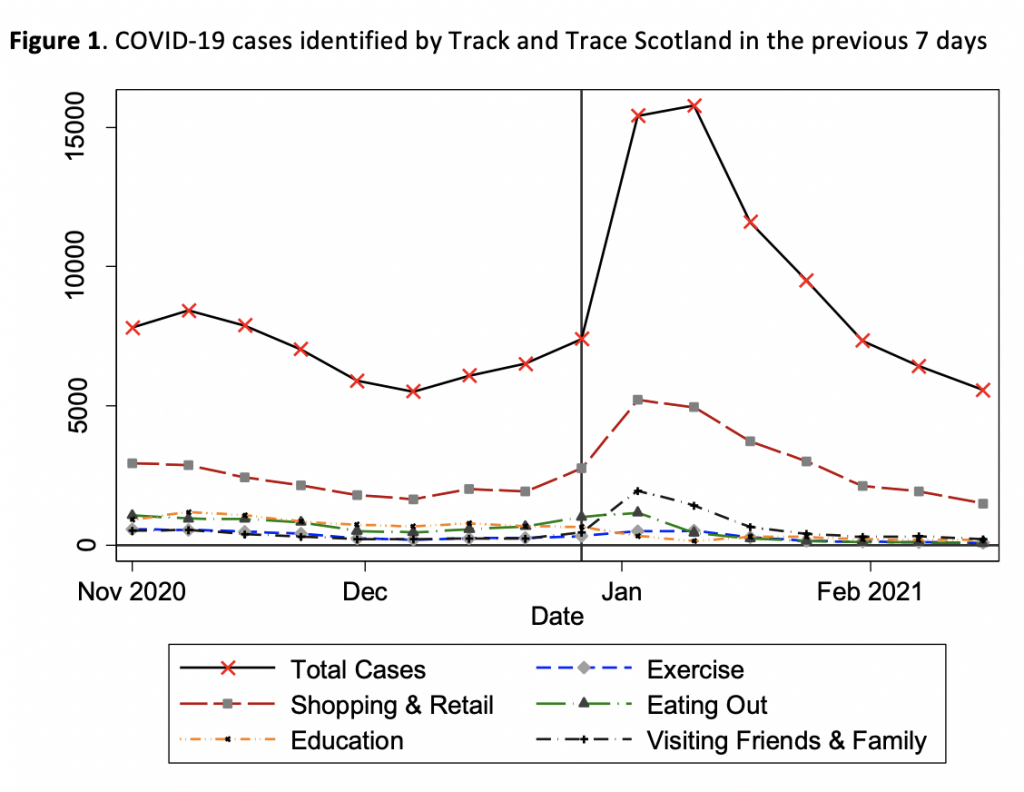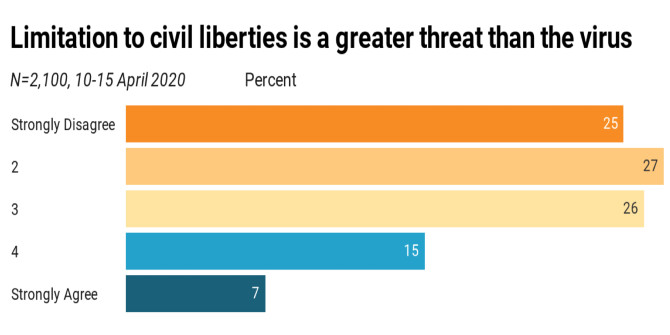
 Zac Greene and Maarja Luhiste write that, although little studied, cabinet members’ lived experiences and interests likely impact the decisions they make. They argue that certain such experiences have probably been better represented in COVID-19 decisions than others due to the profile of prominent politicians.
Zac Greene and Maarja Luhiste write that, although little studied, cabinet members’ lived experiences and interests likely impact the decisions they make. They argue that certain such experiences have probably been better represented in COVID-19 decisions than others due to the profile of prominent politicians.
As the UK prepares to transition to the next stage of the COVID-19 pandemic, with declining infection rates and impressive vaccine uptake, discussion has turned to the relaxing of lockdown rules. Governments now weigh multiple trade-offs as they seek to reopen the country. Armed with substantially greater evidence from the 2020 lockdowns, cabinet ministers wrangle not only with difficult-to-interpret track-and-trace evidence that itself suffers from selection bias, but also with implementing policies consistent with their ideological positions.
The evidence available comes with substantial uncertainty, and even the choice to dogmatically follow a largely non-political scientific board’s advice is a political decision affecting the way governments implement scientists’ recommendations. And while representative democracy requires the ability for citizen deliberation, much of the rhetoric around what ‘following the science’ means has sought to suppress public discussion, limiting citizens’ ability to hold politicians accountable for their interpretations of scientists’ recommendations.
Based on our research explaining politicians’ preferences and policy decisions, we argue that linking substantive representation to descriptive representation by examining politicians’ backgrounds, life-style choices, and professed lived experiences provides grounds for citizen deliberation. While research focuses on fairly descriptive elements of politicians’ backgrounds including observed sex, race or ethnicity, their individual experiences derived from lifestyle choices likely matter as well. Earlier research presented compelling normative arguments for going beyond visible characteristics when discussing the link between descriptive and substantive representation. The assumption is that certain shared lived experiences will help a politician ‘react more or less the way the voter would have done, on the basis of descriptive similarity’. Empirical research supports this contention. Professional experiences and class background predict politicians’ selection to cabinet positions and policy priorities. As parenthood has been found to impact voters’ political attitudes, politicians likewise emphasise children and aspects of their personal lives in decision-making.
Shared lived experiences with the represented are of particular importance to politicians in uncertain and unusual times. Preferences have not yet been (re-)formulated, articulated or legitimated on a range of issues in response to the pandemic, a situation few of us could have foreseen. We argue that certain lived experiences and common lifestyle choices have probably been better represented than others due to the profile of prominent politicians. Understandably, parenthood and family considerations centre in many discussions of lockdown restrictions. Yet, there is a perception by many single people of having been treated as an afterthought in policymaking, which could be partially an artefact of citizen perception that there are few individuals in government facing comparable challenges. That schools were the priority for reopening in the current lockdown likely fed this narrative, even if it was the right policy for ethical and practical reasons, and come with a relatively low risk according to Scottish Track and Trace data in Figure 1 (below).
While parents are justifiably considered worthy of government assistance and consideration, other identities deriving from life choices and non-professional interests – which many parents also share – present a less studied element of politicians’ backgrounds. For example, the UK Cabinet Secretary for Defence, Ben Wallace lists interest in ‘rugby, skiing, motor sports and horse racing’ on his cabinet website. Likewise, the Scottish Cabinet Secretary for Rural Economy and Tourism, Fergus Ewing highlights interest in hillwalking (bagging munros), jazz piano, and being a former member of a Highlands outdoor rescue team. In both UK and Scottish government pages, however, there is limited information on personal experiences and life-style choices for most ministers, particularly as neither Johnson nor Sturgeon emphasise these aspects of their personal lives. There is even less such information on top civil servants and experts who increasingly develop governmental policies in public settings. While new media platforms do offer public figures the opportunity to post more about their personal lives, politicians seem rather hesitant to share such information on social media.
But although little studied, cabinet members’ lived experiences and interests likely impact the decisions made, especially in a context of unarticulated interests. For instance, participation in activities and sports such as jogging, hiking, or cycling provides first-hand insights into their associated risks during a pandemic, driven by a virus that primarily spreads in indoor settings. While economic concerns encourage governments to consider opening non-essential shops, cafes, and pubs as soon as possible, Figure 1 illustrates the risk that each of these choices poses over relaxing other restrictions, such as limits on outdoor exercising. Shopping and retail are one of the greatest locations identified for spreading the virus, whereas the figures for other areas are fairly limited. Even with increased cases from mixing over the holidays, a primary form of transmission was likely the packed shops immediately prior to Christmas, which then led to greater transmission among families.
 Note: All data are freely available from Public Health Scotland. As attending some venues (e.g. restaurants, pubs, schools, etc.) has been highly restricted or banned during some of the time periods presented on the figure, there is need for caution when interpreting the data.
Note: All data are freely available from Public Health Scotland. As attending some venues (e.g. restaurants, pubs, schools, etc.) has been highly restricted or banned during some of the time periods presented on the figure, there is need for caution when interpreting the data.
Although there is no easy indicator of whether transmission occurred indoors or out, most activities more naturally held outdoors (such as exercise) show extremely low transmission rates. These findings are consistent with recent research in Nature and Science (relying on large cross-national datasets), evidencing the limited added benefit of stay-at-home orders and restrictions on internal movement. The beach ‘super-spreader’ myth provides further local evidence and questions the decision of essentially locking city dwellers within their local area in England and within five miles of their local authority area in Scotland. With a lack of empirical evidence supporting these measures, why are political leaders not ‘following the science’ in this case?
Intriguingly, there are few self-professed outdoorsmen/women in the UK or Scottish governments, but the latter’s inclusion of Ewing (previously a member of a mountain rescue team) may have influenced the government’s messaging. The slightly greater flexibility to travel within five miles of the local authority area has retained for his constituents in Inverness, in contrast to Glasgow or Edinburgh, an easy access to the Scottish Highlands. Yet, messaging surrounding outdoor sports came with a strong moral argument to stay home. Going to the Highlands was claimed to include substantial risk of requiring emergency support and putting the NHS at risk, despite fairly limited numbers of major emergencies even under normal tourist conditions. Similarly, participation in activities such as grouse hunting may have benefited only special interest groups.
Scholars find that the diversity of representatives in government during crises impacts the types of policies they pursue. The ongoing pandemic and resulting economic and health crises have substantially exacerbated pre-existing inequalities. Government policies intended to address the pandemic differ across countries working with the same or similar expert advice, with sometimes striking differences in practice, suggesting political considerations. But, claims of following the experts limit citizens’ ability to have a reasoned discussion of decisions which are ostensibly political, not purely scientific ones. Perceptions of government policies in crisis situations are both structured by individuals’ multiple overlapping identities and also likely create new ones. Persistent lack of representation within government across diverse backgrounds may hold the key to understanding the current crisis in citizens’ support for democracy. Failure to account for citizens’ broad experiences will exacerbate these tensions with substantial potential for major electoral and political shifts into the future.
_______________________
Zac Greene is a Reader in the Department of Government and Public Policy at the University of Strathclyde.
 Maarja Luhiste is Senior Lecturer in the Politics of Gender at Newcastle University.
Maarja Luhiste is Senior Lecturer in the Politics of Gender at Newcastle University.
Photo by Elena Mozhvilo on Unsplash.







